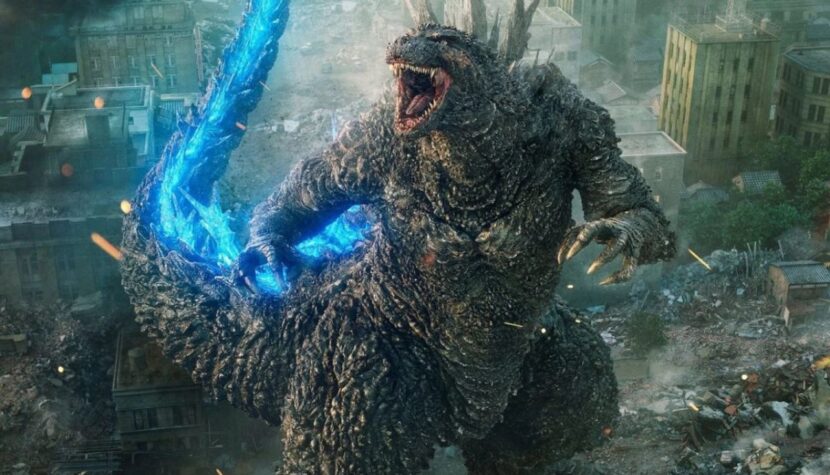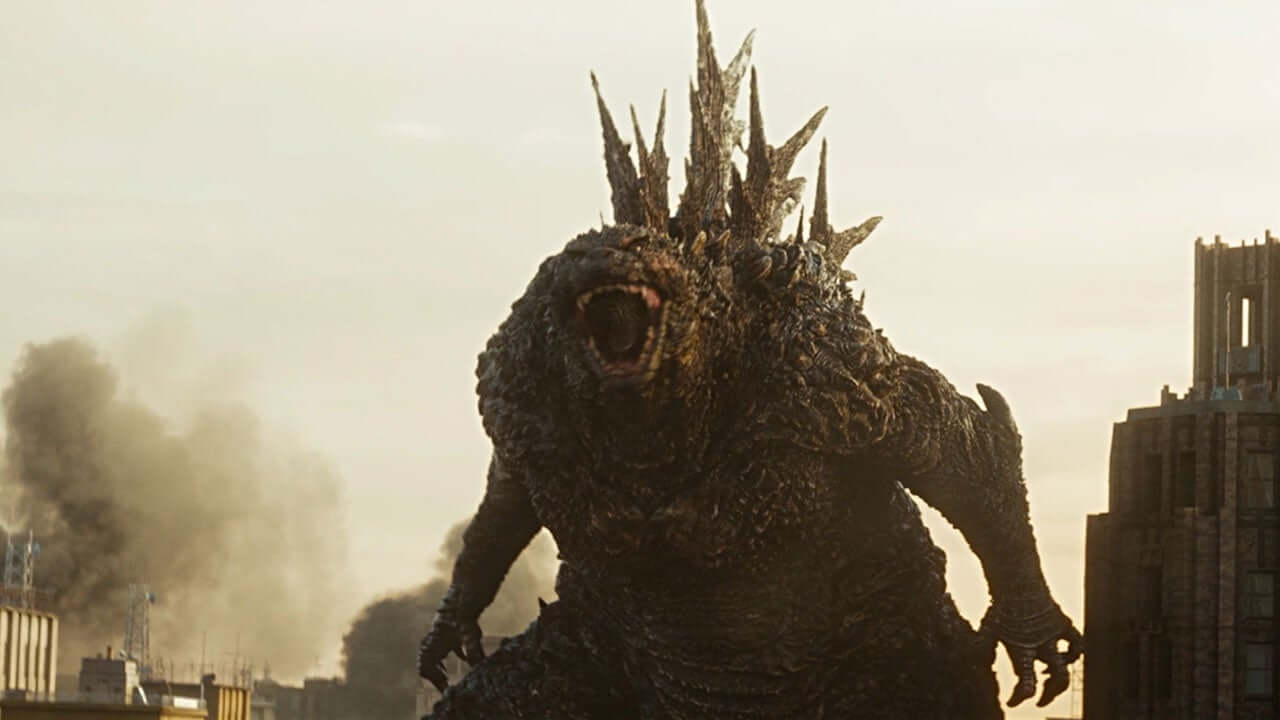GODZILLA MINUS ONE. The Return of the King

Godzilla Minus One is truly as good as they say. It’s a triumph of CINEMA in its purest form and an absolute fulfillment of the dreams of Godzilla fans. On the 70th anniversary of its creation, we received a gem that other creators will refer to for years to come. The Japanese production sets a new/old direction for the genre and proves that there is immense potential in the classics. It’s a MONSTROUSLY good film on every production level – effects, screenplay, execution, and acting. Toho’s production has (literally and metaphorically) a few cracks in the final act, but throughout the entire viewing experience, it delivers sensations that I probably didn’t expect from a Kaiju film in a long time. And all of this for a symbolic $15 million. It’s mind-blowing.
Pacifist treaty Elegant, not flashy – that’s the best description of Takashi Yamazaki’s film. Well, you can also add one more epithet – outstanding. In Minus One, we get a grand pacifist treaty about the fact that war does not end with the last explosion of cannons and rifle salvo. Comparisons with the work of Miyazaki are not unfounded here. It may not be something groundbreaking because the original Godzilla from 1954 also dealt with Japan’s trauma from World War II. In Minus One, we return to the roots of this timeless, universal story, where giant kaiju once again symbolize the cruelty, madness, and horror of those times. Without disrespecting the classic, which I love, I must admit that this film has achieved the impossible – it provides entertainment in a modern setting while being atmospheric, elegant, and paying homage to classic cinema. The creators here are rebuilding the legend, simultaneously restoring something forgotten – a true fear of the unconquerable, a monster beyond our imagination and strength.

What I find most amazing here is the perfect combination of two layers of the story – a tale of eternal fear and trauma, a grand pacifist manifesto, and a classic monster story. This balance is perfectly maintained, contrasting with the current trend in Hollywood cinema, where the further from existential themes, purely human issues, the better. Let the monsters clash, cities fall like LEGO blocks. Here, the stakes are extremely high, stripping away nationalism in favor of purely human threads of soothing one’s own conscience, dealing with one’s demons, which are simultaneously symbols of national trauma and shame. The fight against Godzilla here is synonymous with redeeming sins for past transgressions, which seems like a cheap solution but fits perfectly on screen. The whole story is incredibly engaging due to the realism of the problems – the family drama has the tension and drama of the best Kore-eda films. This makes you want to follow both the story of the monster encounter and the human demons. It’s a great achievement. Yes, a couple of scenes were added in the finale without which the whole could do, but it’s worth considering that this film refers to different cultural circles, and it is still a story with an incredibly universal dimension.
Many scenes, tension, and setting are a great homage to Spielberg’s Jaws. And it’s not just about the brilliant music but also about playing the same tricks that instilled fear in the viewer – the unknown, constant sense of danger and fear. There is also expertly built tension around the monster itself, which is enhanced by really good, convincing effects. Visually, Godzilla looks intimidating. There’s something terrifying in its gaze and behavior. The scenes with the fighter jet circling the monster were pure directorial mastery and an incredible adrenaline rush. Honestly? I have no idea how, in times when over 200 million dollars are spent on Marvel’s Secret Invasion, such visually impressive cinema can be made for $15 million. It’s like a slap in the face for Hollywood, which should hit its chest and go learn from Toho. It seems even funnier in the perspective of the almost simultaneous release of the first announcements of the second part of the American Godzilla vs. Kong, which sometimes looks a bit like… a parody. I know I’ll also enjoy it there immensely, but on some other level of aesthetic experience, with a wink. Here we have cinema taking itself seriously, with the monster at the center, which is theoretically grotesque but works perfectly.

Godzilla Minus One is the best blockbuster of the year, a benchmark for genre cinema quality. Yamazaki reaches for absolute classics in his film, sets new narrative paths, and mythologizes the legend. This is how modern, serious, bold, and tense monster films should be made. There’s no need for flashiness, buffoonery, just real stakes, engaging storytelling. The effect pins you to your seat.”

